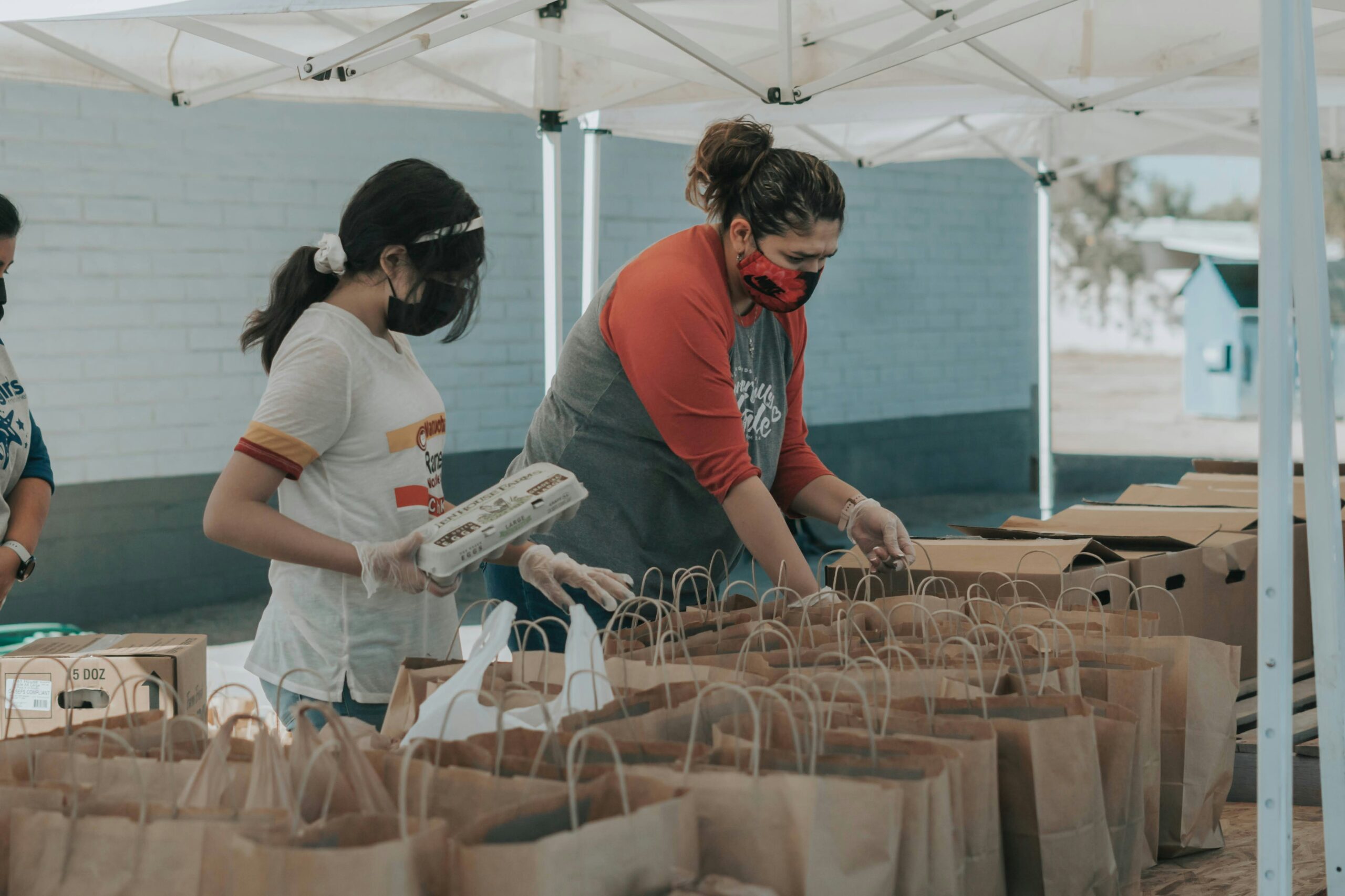Family is where we first learn about love, respect and relationships. As parents and guardians, how we interact within our family sets the tone for our household and shapes our children’s understanding of relationships and self-worth. With intentionality and compassion, we can model respect and love within the family dynamic, creating an environment of mutual understanding and healthy connections.
NOTE: As of Feb. 29, 2024, Carolina Youth Development Center (CYDC) has rebranded to Landmarks for Families. Our nonprofit, community programs and residential services remain committed to cultivating thriving youth and families in this new chapter.
Teaching Teens About Healthy Relationships
Teen Dating Violence Awareness Month is an excellent time to remind us all of the importance of educating our youth about healthy relationships. As young adults venture into the dating world, distinguishing between healthy and unhealthy romantic relationships – with or without a good family life – can be challenging.
Teen dating violence is more common than many realize. According to the Centers for Disease Control and Prevention (CDC), about one in 12 teens experience physical and/or sexual dating violence. It can manifest in various forms, from physical abuse to emotional manipulation.
However, awareness and education can empower both parents and teens to identify the signs of dating violence and foster relationships built on mutual respect, trust and communication. Recognizing these red flags is the first step toward intervention and support:
- Unauthorized Checking of Devices: Invading privacy by checking cell phones or emails without permission.
- Constant Put-downs: Engaging in demeaning remarks or constant criticism.
- Jealousy and Insecurity: Exhibiting extreme jealousy or possessiveness.
- Explosive Temper: Displaying uncontrollable anger.
- Isolation: Attempting to cut off relationships with family and friends.
- False Accusations: Accusing you of things without basis.
- Mood Swings: Experiencing severe fluctuations in mood.
- Physical Harm: Inflicting physical pain or harm.
- Controlling Behavior: Dictating what you wear, where you go, or what you do.
- Possessiveness: Claiming ownership over your time and decisions.
Conversely, healthy relationships include mutual respect, trust, good communication, anger and self-control and the recognition and celebration of the individuality of one’s partner.
Fostering your child’s self-respect and confidence is just as crucial to their safety. If they understand their worth, it is more likely they can identify when a partner, friend or individual is not treating them in a healthy and respectful way.
Understanding the Importance of Role Modeling
Children grow by absorbing the world around them, and the most influential aspects of that world are the behaviors and attitudes of the adults in their lives.
From the earliest moments, youth watch and emulate their parents and guardians, learning to navigate the complexities of emotions, relationships and interactions.
This mimicry is not just imitation; it’s a vital part of their learning and development process. That is why we “grown-ups” must practice what we preach.
How to Model Respect and Love Within the Family Dynamic
Demonstrating and promoting love, patience and understanding in our daily actions provides a blueprint for our children to build their social skills and emotional intelligence. These steps will help you foster an environment of positivity within your family model:
Cultivate Open Communication
Open communication is the cornerstone of any respectful relationship. It fosters understanding, empathy and trust.
- How to Model It: Encourage your children to express their thoughts and feelings without fear of judgment. Ask open-ended questions and share your own experiences to create a safe space for dialogue.
Demonstrate Active Listening
Active listening is a fundamental aspect of respect. It conveys that each family member’s perspective is valuable and worthy of attention.
- How to Model It: Put away distractions when engaging in conversations. Make eye contact, nod and respond thoughtfully to what your child is sharing to show you genuinely care about their thoughts and feelings.
Practice Empathy
Teaching empathy builds bridges of understanding and strengthens emotional connections. It helps children to consider the feelings of others.
- How to Model It: When conflicts arise, strive to see things from your youth’s perspective. Acknowledge their emotions, even if you disagree with their point of view. This sets the foundation for empathetic responses.
Prioritize Quality Time
Spending quality time together reinforces the idea that family is a priority. It creates lasting memories and strengthens emotional bonds.
- How to Model It: Schedule regular family activities or rituals, whether it’s a weekly game night, a weekend outing or simply sharing a meal. Be present during these moments without the distraction of phones or other devices.
Resolve Conflicts Constructively
Conflicts are inevitable, but how they are resolved can either build or erode respect. Healthy conflict resolution models effective problem-solving, builds understanding and preserves your family’s precious bonds.
- How to Model It: Demonstrate patience and understanding during disagreements. Use “I” statements to express your feelings, and encourage your children to do the same. Work together to find mutually satisfactory solutions.
Celebrate Differences
Respecting and appreciating differences fosters a sense of inclusivity within the family. It teaches tolerance and broadens perspectives.
- How to Model It: Embrace and celebrate the unique qualities of each family member. Discuss diverse viewpoints with curiosity and openness. Show that differences are not just tolerated but valued.
Express Love Freely
Love is the bedrock of family relationships. Expressing love openly creates a warm and nurturing environment.
- How to Model It: Verbalize your love regularly. Use words of affirmation, hugs and small gestures to convey affection. Celebrate achievements, no matter how small, to reinforce feelings of love and pride.
Each step in this process is essential, but it is the culmination of your efforts that will mean the most. Through conversation and continued practice, you can actively teach your child about healthy relationships.
Lowcountry Family Services You Can Rely On
With more than 200 years of experience supporting our nation’s youth and families, Carolina Youth Development Center is equipped to lead your child or family through life’s challenges. Whether on-site or in-home, our compassionate team is ready to meet you where you are with the services you need. Contact us today to learn more about our programs and speak with a member of our team.


